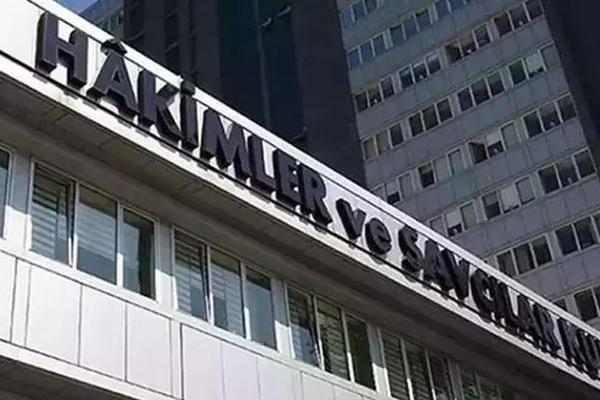HSK enacts judicial reassignments in major overhaul
ANKARA


The Council of Judges and Prosecutors (HSK) has enacted significant appointments and reassignments, affecting a total of 4,340 judges, prosecutors and court members across Türkiye.
According to the HSK's January decree, published in the country's Official Gazette on June 29, Zafer Koç has been appointed chief public prosecutor of the Istanbul Anatolian Palace of Justice.
Gökhan Karaköse, Mustafa Gökçe and Yakup Ali Kahveci have taken on the roles of chief public prosecutors at the Ankara Courthouse, Ankara West Courthouse and Antalya Courthouse, respectively.
In a February decision, an additional 37 judges and prosecutors were reassigned.
A further major reorganization took place earlier this month, with 4,009 judges, prosecutors and court members receiving new assignments.
The decree appointed 290 court members and heads in the administrative judiciary. The reshuffle includes new chief prosecutors in 20 provinces – among them Bolu, Sivas, Tekirdağ, Kars and Tunceli.
For the first time, chief prosecutors have been appointed to courthouses in the districts of Vakfıkebir, Germencik, Çivril, Mut, Pazarcık, Gerede and Şereflikoçhisar.
The HSK has also announced the establishment of high criminal courts in the districts of Torbalı, Anamur, Çerkezköy, Çeşme, Dörtyol, Milas, Polatlı, Birecik, Ergani and Reyhanlı, with new heads appointed to these courts.
Moreover, 45 investigative judges and 14 public prosecutors have been appointed to the Court of Appeals. Ten judges from the high court have been reassigned to regional courts of justice, and 12 to first instance courts.
Meanwhile, Justice Minister Yılmaz Tunç announced the results of interviews for 1,000 assistant judges and prosecutors, selected from candidates who passed a written exam held last December.
"I congratulate the first assistant judges and prosecutors of our new system, which will enable our judges and prosecutors to prepare for the bench in a better equipped and stronger way, and wish them success in their duties," Tunç wrote in a social media post on June 29.
The new deputy judges and prosecutors will undergo one year of training at the Justice Academy before officially joining the profession.
They will then work alongside experienced colleagues for two years in a "master-apprentice relationship," the minister said.
